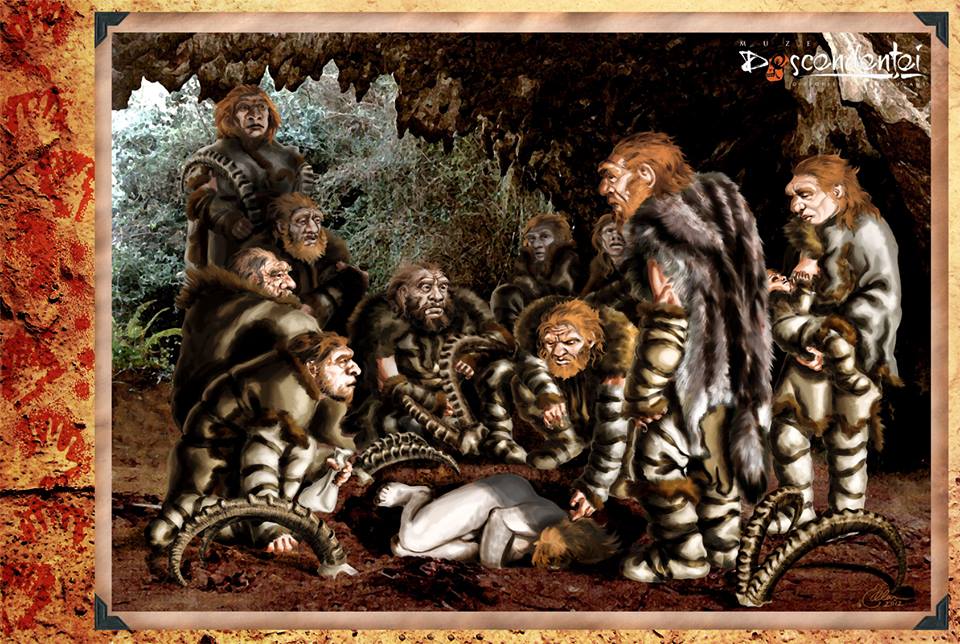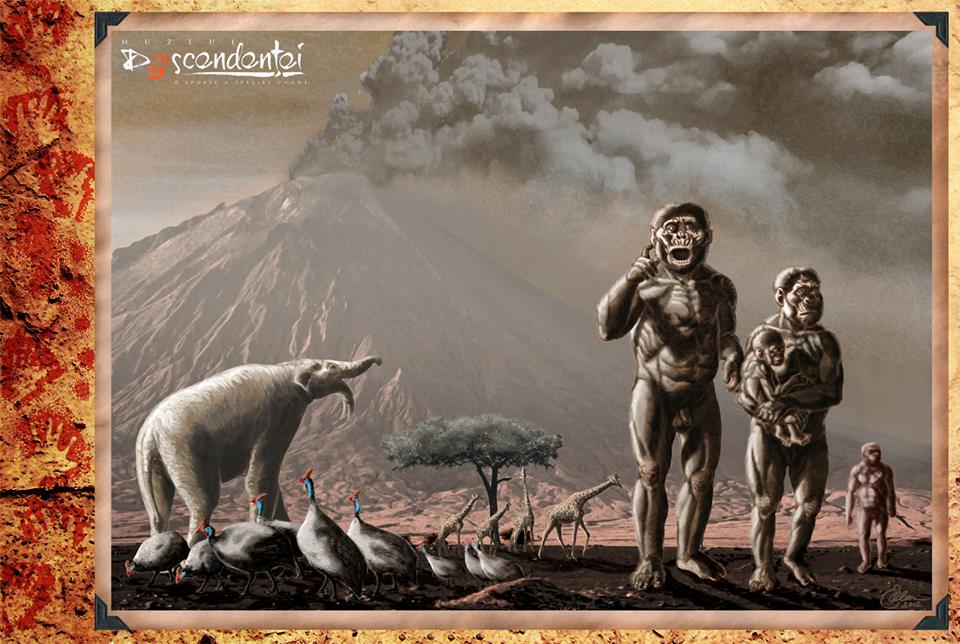"Civilization of Hunger"
This book approaches human evolution from a whole new angle. Based on a rich inventory of genetic data, biochemistry, molecular biology, neurology, but also ethology, socio-biology, paleontology, history, brings into question an original hypothesis of humanization.

Where can this book be found?

About the book
Without pretending to constitute a new theory of humanization, decision that belongs to the readers, this hypothesis tries to answer some questions related to humanization, such as the appearance of specifically human characters, but also to offer solutions to some problems of human pathology, treated through the prism of the particularities of human evolution.
Also, the hypothesis on which this book is based offers new research directions in several areas of biology and medical sciences. Darwinism has recently been going through a crisis of acceptance by the general public, the consequence of which is the rise of creationist theories and intelligent design. This hypothesis complements Darwinism, trying to explain some new discoveries that apparently contradict evolutionism.
Although it contains strictly specialized data, PAPER, for the most part, it is written in a language accessible to the general public. It is addressed to biologists, physician, but also to all readers interested in the mysteries of evolution.
Questions and answers
Believe that:
Man is the fattest primate
Because his cub is born helpless, therefore it needs heat, and the adipose layer, considerably compared to those existing in other related primates, it has the role of protecting it from the cold in the savannah? (the official version in science at the present time)
Mayr, E., From bacteria to humans – the evolution of the living world, Humanitas, 2004 p.308-309
Or because there was a period in its evolution when it lived in a semi-aquatic environment, and marine mammals have a considerable fat layer, which he keeps all year, not seasonal, like hibernating animals (the aquatic theory of humanization, INFORMAL, contested in science)?
Morgan, Elaine (1997). The Aquatic Ape Hypothesis. Souvenir Press.ISBN 0-285-63377-5.
Morris, D.,The naked ape: A Zoologist’s Study of the Human Animal McGraw-Hill Companies, 1967
The human offspring is so helpless against the offspring of other primates

Because selection favored a bigger brain, in fact the intelligence it assumed? The brain has grown a lot before birth, but his growth could only take place up to a point. That point was represented by the birth canal, limited in turn by bipedal walking, in the sense that if it had been bigger, then the ability to walk bipedally would have been impaired. Then the chick is a premature cu 17 Monday, continuing its growth with a rhythm similar to that of intrauterine life, actually continuing its intrauterine life after birth, later reaching the stage of development reached by the chimpanzee baby at birth.
Mayr, E., From bacteria to humans – the evolution of the living world, Humanitas, 2004 p.308-309
The waistline of human ancestors increased from the Australopithecines, then to the genus Homo (The man stood up) and up to the present man
Also due to brain growth ? For a bigger brain, the baby was bigger, that's why mom got bigger. He became bigger so that he would have the strength to hold him. Also because of this, sexual dimorphism (in this case, height difference between females and males) decreased compared to Australopithecines.
Mayr, E., From bacteria to humans – the evolution of the living world, Humanitas, 2004 p.308-309/

The man lost his fur
Also due to brain growth? For a bigger brain, the baby was bigger, that's why mom got bigger. He grew bigger to have the strength to hold him. Also because of this, sexual dimorphism (in this case, height difference between females and males) diminished from the Australopithecines.
Mayr, E., From bacteria to humans- the evolution of the living world, Humanitas, 2004 p.308-309
Man lives longer than chimpanzee
Because he needs to learn more time. One selection factor was that given by hunting, whose practices are difficult and require several decades to assimilate. That is, man lives long because the learning of hunting has selected individuals who live longer, thereby being better hunters. For comparison, Albert Einstein had 26 years when he began to teach others the Theory of Relativity, although no one taught him.
Finch, C. E.,. Stanford, C. B. Meat-adaptive genes and the evolution of slower aging in humans, The Quarterly Review of Biology, March 2004; 79 (1)
Man has slower growth, a slower maturation, in other words, a slower life, compared to the chimpanzee because slower growth is associated with a larger brain? Indeed, there are certain correlations between the two phenomena. But slow growth would have allowed for longer learning, the accumulation of knowledge for a longer time.
Morris, D.,The naked ape: A Zoologist’s Study of the Human Animal McGraw-Hill Companies, 1967
And if you think that's all, one more idea:
Menopause appeared in man
So that grandmothers can devote themselves to the education of their grandchildren, thus teaching them to gather roots (although increasing fitness, that is, the ability to have viable offspring must be the result of natural selection, selective advantages in this are measured)? Theoretical, indeed, investing in grandchildren or other relatives perpetuates one's own genes, but the education of a child must have been extremely expensive back then.
Hawkes, K., et al., Grandmothering, menopause, and the evolution of human life histories. Proc Natl Acad Sci U S A 1998;95:1336-1339
You want a theory that answers all these questions at the same time? And in a few sentences, (in fact in a few words, phrases come for explanations) without supporting hypotheses and postulates? If you haven't already become creationists, such a thing is found in "The civilization of hunger – another approach to humanizationi”. Evolution 100%. However, it's a new science, Darwin's theory will only come true next year 150 years since publication. If only medicine were so young, we would still recommend bleeding for all kinds of ailments. We have to give chances to a science that is still in its cradle, but it doesn't have to stay there. It's time for evolution to invent itself… the antibiotics.
